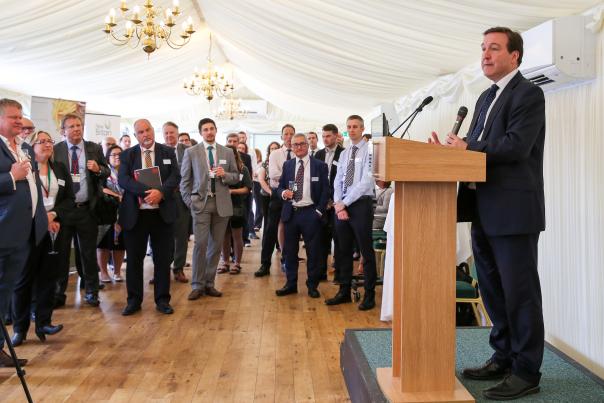
The event was held in association with Chester Zoo; natural resource management consultants, Efeca; and the British and Irish Association of Zoos and Aquariums (BIAZA).
The organisations are working with the Roundtable on Sustainable Palm Oil (RSPO) to reduce the negative impact of palm oil globally. Issues discussed included deforestation, habitat degradation and human rights violations in the countries where it is produced.
Speaking to Cost Sector Catering, Chris Matheson, MP for the City of Chester, said: “Some food producers and foodservers have looked at removing palm oil altogether. But the campaign Chester Zoo has launched has identified that actually alternatives to palm oil might be just as damaging. But if you grow palm oil in a sustainable way and manage that properly, then you can make a great difference to the natural environment and to the animals that live there."
He said that those in the foodservice industry “should be looking for palm oil that is sourced sustainably and has that sustainable kitemark to demonstrate that it’s come from a plantation that is taking into account those important factors that will look after natural habitats.”
He added: “Palm oil has a much higher yield [than the alternatives]. If you move other forms of oil, it will actually cause greater deforestation because you need to grow more plants in order to get the same volume of oil."
Palm oil is the world’s most used vegetable oil. It is widely used for frying fats and in biscuits, margarine, snacks and bakery products, as well as in cleaning products and in cosmetics. Its versatility and stability at high temperatures mean that it is commonly used in the foodservice industry.
The oil is made from the fruits of trees called African oil palms. The trees have been introduced to Indonesia and Malaysia; the two biggest palm oil producers. China and India are the world's biggest consumers of palm oil but have faced criticism because they have not embraced sustainability. According to the World Wildlife Fund, an area the equivalent size of 300 football fields of rainforest is cleared each hour to make way for palm oil production.
The Government has committed to the Amsterdam Declaration for Europe to support a fully sustainable palm oil supply chain by 2020.
There is no one definition of sustainable palm oil. RSPO-certification in the UK is taken to mean that palm oil products are sustainable. The criteria include products coming from vetted sources.
A spokesperson from vegetable oils and fats solutions provider AAK said: "The volume of palm oil used in foodservice mean that making it sustainable is a very important decision. If you use certified sustainable palm oil, you’re making a very responsible sourcing decision."